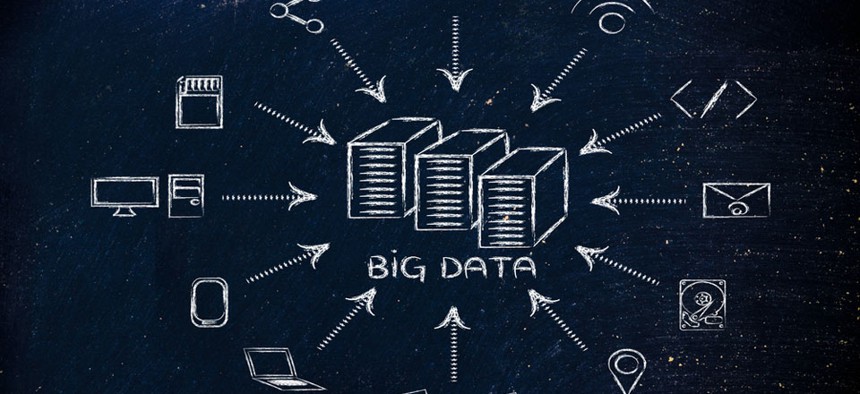Why Big Data Gets a Bad Rap in Government

faithie/Shutterstock.com
Believe it or not, big data is not all fire and brimstone, surveillance and mass spying.
Big data is the reason your financial institution calls you after an odd credit card purchase.
It’s also the reason Facebook always seems to know what ads to pop up while you’re working hard checking out who commented on your supercute throwback Thursday picture.
Emerging technologies like big data are polarizing. Ten years ago, few organizations outside of the National Security Agency undertook true efforts in big data. Of course, the potential to abuse technologies that allow for the collection, amalgamation and analysis of otherwise unlinkable data sets is precisely the fear a growing number of people have.
But hold the phone. The opportunities for exploitation may make sexier headlines, but big data is doing a whole lot of good behind the scenes. It’s not all fire and brimstone, surveillance and mass-spying.
“I get really passionate about everyone not talking about the good big data does versus the bad everyone wants to talk about,” said Nick Curcuru, senior business leader at MasterCard.
“Big data creates so much better opportunities for us to create better customer experiences, to cure diseases.”
Curcuru was one of several big data experts who spoke Feb. 25 at the Cloudera Federal Forum in Tysons Corner, Virginia, which was produced by Custom Strategies, a division of Government Executive Media Group.
His message was clear: Sure, big data can be used for malicious purposes but so can a vehicle, a computer or nearly any other tool or technology.
Citing the Obama administration’s big data initiative and the recent hiring of DJ Patil, the first federal chief data scientist, Curcuru said big data has made vast strides in recent years.
Yet, those steps forward have been offset in many ways by a plethora of recent cybersecurity breaches. Large companies like Target, Home Depot and Sony joined the State Department and White House as just a few major organizations who got owned over the past 18 months.
“The whole cyber thing, everyone’s like, ‘Oh, my God,’” Curcuru said to reporters. “There are good things big data does that are washed away because of a breach.”
The national conversation, he said, needs to shift toward developing standards for ethical uses of data. In other words, “just because you have data does not mean you should use it,” he said, but security remains extraordinarily important. Health care providers, financial institutions and, yes, the federal government -- the granddaddy of all of information collectors -- must focus on first securing data before seeing what they can do with it.
MasterCard employs a governance team to strategize over its data sets. The bigger or more sensitive the data sets, “the bigger the target,” so security becomes an extension of the data collected. Access controls, encryption, oversight and education -- for high-level executives and lower-level financial employees alike -- are all major focus areas for the team. The end result is a lot of useful customer data that, Curcuru said, used wisely can improve the collective experiences of customers.
“If we can secure your data, here’s the business value we drive,” he said. “You get a better customer experience. That’s what big data does.”
(Image via faithie / Shutterstock.com)
NEXT STORY: When Congress and Cloud Collided






